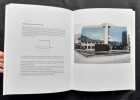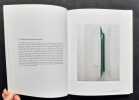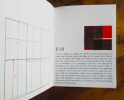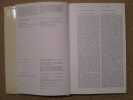119 books for « lyotard jean francois »Edit
-
Type
Book (118)
Magazine (1)
-
Century
20th (69)
21st (5)
-
Countries
Belgium (8)
Canada (2)
Denmark (1)
France (103)
Switzerland (5)
-
Syndicate
ALAC (2)
ILAB (54)
SLAM (49)
Topics
- 1900 (2)
- Aesthetics (2)
- Arrabal (1)
- Artists (1)
- Autographs (1)
- Ayme marcel (3)
- Biography (4)
- Brecht bertolt (1)
- Calvino italo (1)
- Carrouges michel (1)
- China (1)
- Chopin frédéric (1)
- Communism (1)
- Constitution (1)
- Dedication (1)
- Dore gustave (1)
- Drawings (1)
- Economics (2)
- Exhibition (1)
- Fine arts (6)
- First edition (5)
- French literature (1)
- Game (1)
- Genealogy (1)
- Hebraic literature (1)
- History (1)
- History of art (6)
- Honegger (1)
- Illustrated books (1)
- Klossowski de rola balthasar (1)
- Lévi-strauss claude (1)
- Literary review (1)
- Literature (3)
- Lyotard jean-françois (33)
- Malraux andré (7)
- Marx karl (1)
- Monk (1)
- Painters (1)
- Painting (1)
- Painting (5)
- Philology (1)
- Philosophy (18)
- Photography (1)
- Poetry (1)
- Psychology (2)
- Review (5)
- Revue de l'art (1)
- Ruth (1)
- Sailor (1)
- Sculpture (1)
- Serres michel (1)
- Sicard (1)
- Socialism (2)
- Surrealism (2)
- Szeeman harald (1)
- Theory (2)
- War (1)
- Woods & woods’ price lists (1)
La Condition Postmoderne. Rapport sur le savoir. - [PRESENTATION-COPY]
(Paris), Minuet, (1979). [Recte: Les Ateliers de Normandie, 1988]. 8vo. Original wrappers. A bit of minor soiling to wrappers, otherwise very fine. Apart from some underlinings to the first few pages, internally very nice and clean. 109, (3) pp. Author's presentation-inscription ""pour Jen,/ avec ironie/ et myopathie/ J-F Lyotard/ Sharlony [?]/ Janvier 1991"".
Lovely presentation-copy of a later issue of the groundbreaking work that introduced the term ""post-modernism"" and fundamentally altered the interpretation and course of (post-)modern philosophy. With this book, Lyotard set the agenda for the discussion of the postmodern, which began in the 1980'ies. Lyotard's main point is that modern society has become postmodern because man no longer believes that scientific and technological progress will lead to freedom, prosperity, and enlightenment for all. For postmodern man, doubt is the dominating factor. The term ""postmodernism"" was previously only used by art critics, but with ""The Postmodern Condition"", Lyotard introduced it in philosophy, with the following quotation: ""Simplifying to the extreme, I define postmodern as incredulity towards metanarratives"", altering our comprehension of this most recent period of philosophy. ""The term ""postmodern"" came into the philosophical lexicon with the publication of Jean-François Lyotard's ""La Condition Postmoderne"" in 1979 (English: ""The Postmodern Condition: A Report on Knowledge"", 1984), where he employs Wittgenstein's model of language games (see Wittgenstein 1953) and concepts taken from speech act theory to account for what he calls a transformation of the game rules for science, art, and literature since the end of the nineteenth century. He describes his text as a combination of two very different language games, that of the philosopher and that of the expert. Where the expert knows what he knows and what he doesn't know, the philosopher knows neither, but poses questions. In light of this ambiguity, Lyotard states that his portrayal of the state of knowledge ""makes no claims to being original or even true,"" and that his hypotheses ""should not be accorded predictive value in relation to reality, but strategic value in relation to the questions raised"" (Lyotard 1984, 7). The book, then, is as much an experiment in the combination of language games as it is an objective ""report.""On Lyotard's account, the computer age has transformed knowledge into information, that is, coded messages within a system of transmission and communication. Analysis of this knowledge calls for a pragmatics of communication insofar as the phrasing of messages, their transmission and reception, must follow rules in order to be accepted by those who judge them. However, as Lyotard points out, the position of judge or legislator is also a position within a language game, and this raises the question of legitimation. As he insists, ""there is a strict interlinkage between the kind of language called science and the kind called ethics and politics"" (Lyotard 1984, 8), and this interlinkage constitutes the cultural perspective of the West. Science is therefore tightly interwoven with government and administration, especially in the information age, where enormous amounts of capital and large installations are needed for research."" (SEP).
KAREL APPEL. UN GESTE DE COULEUR/ A GESTURE OF COLOUR,
Leuven, University Press, 2009 Relie, couverture carton, 160 x 235mm., 249pp., 25 illustrations en couleurs hors texte. ISBN 9789058677563.
Karel Appel. Un geste de couleur est le premier d'une serie de cinq volumes reunissant les ecrits les plus importants de Jean-Francois Lyotard (1924 - 1998) sur l'art contemporain et les artistes. Le livre qu'il a consacre a l'art de Karel Appel (1921 - 2006) est sans doute un texte parmi les plus acheves et les plus inspires de tous les ecrits inclus dans la serie. Ni le manuscrit original en francais ni la traduction en anglais n'ont jamais ete publies, et leur presentation face a face devrait constituer une plus-value considerable. Dans ce livre, Lyotard presente le matierisme de Karel Appel comme offre de presence, presence differee - c'est du visuel ou tout predicat est suspendu, du visuel touche, ? geste ? de couleur plus que propriete de couleur, apparition qui se tient au bord de l'abime. L'epilogue de Christine Buci-Glucksmann situe la position de Karel Appel. Un geste de couleur dans l'ensemble des ecrits sur l'art de Lyotard, en prenant en compte egalement l'oeuvre ulterieure du philosophe. Nouveau livre.
Clément (Catherine) - Lascault (Gilbert) - Lyotard (Jean-François) - Dufrenne (Mikel) - Marin (Louis) - Damish (Hubert) - Charles (Daniel) - Bosseur (Dominique) - Lipovetski (Gilles) - Sicard Michel) - Butor (Michel).
Reference : 20643
Jean-François Lyotard.
L'arc - N° 64- 1 janvier 1976. In octavo carré, illustration en noir, 88 pp. Très propre.
A noter de Jean-François Lyotard " Sur la force des faibles". Franco de port France jusqu'à 29 euros iclus. MONDIAL RELAY pour : FRANCE, Portugal, Pologne, Espagne, Allemagne, Autriche, Pays Bas, Luxembourg, Italie, Belgique. Toutes les étapes sont accompagnées. Achat, estimations et listages France / Suisse (sur rdv).
Que peindre ? Adami-Arakawa-Buren.
Aux éditions de la Différence, 1987. Deux volumes in-4 br. sous emboîtage éditeur illustré. Coll. " La vue du texte ". Vol. 1 : texte de J.-F. Lyotard. Vol. 2 : oeuvres d'Adami, Arakawa et D. Buren. Reproductions principalement en couleurs. E.O. Bel envoi autographe de Jean-François Lyotard.
GUIFFREY (René). LYOTARD (Jean-François). ROURE (Jean-Claude). BARRE (François). RAILLARD (Georges).
Reference : 46340
René Guiffrey. L'oeuvre à blanc (un parcours).
Editions Fage : ouvrage publié à l'occasion de l'exposition à L'Isle-sur-la-Sorgue en 2016. Un volume broché (22x28 cm), 109 pages. Avec des reproductions en couleurs des oeuvres présentées. Textes de Jean-François Lyotard, Jean-Claude Roure, René Guiffrey, François Barré, Georges Raillard. Bon état.
La Confession d'Augustin. Frontispice et travaux photographiques de François Rouan.
Paris Galilée, coll. "Incises" 1998 1 vol. broché in-8, broché, couverture à rabats grenat, non coupé, 120 pp., 5 pages de fac similé in fine. Édition originale. Un des 106 exemplaires de luxe numérotés comportant une sérigraphie aquarellée et signée par François Rouan, et parmi ceux-ci l'un des 8 exemplaires d'artiste justifié "E.A. 2/8". Prière d'insérer conservé. En excellente condition.
[Ayme (Albert)] - Ayme (Albert), Petitot (Jean), Darrault (Ivan), Roque (Georges), Lyotard (Jean-françois)
Reference : 2275
(1992)
Albert Ayme, retrospective 1960-1992. Ecole nationale supérieure des Beaux-Arts
1992 1992 Ecole nationale supérieure des Beaux-Arts, Fondation Crédit Lyonnais, Paris, 1992. 1 volume in-4 broché, 288 pages, illustrations en n&b et couleurs. Envoi du peintre à Jacques de Champfleury "pour Jacques de Champfleury ce long chemin solitaire sans compromission, avec amitié".
La librairie est ouverte du mardi au samedi de 9h30 à 12h30 et de 13h30 à 19h00. Commandes par courriel ou téléphone. Envoi rapide, emballage soigné. La librairie est ouverte du mardi au samedi de 9h30 à 12h30 et de 13h30 à 19h00. Commandes par courriel ou téléphone. Envoi rapide, emballage soigné.
Signé Malraux
Grasset In-8°,couverture blanche ill de M.à son bureau,360 pages,un date et un nom en page de garde,sinon bel ensemble.
Bon Etat Franco de port France jusqu'à 29 euros iclus. MONDIAL RELAY pour : FRANCE, Portugal, Pologne, Espagne, Allemagne, Autriche, Pays Bas, Luxembourg, Italie, Belgique. Toutes les étapes sont accompagnées. Achat, estimations et listages France / Suisse (sur rdv).
Le mur du Pacifique
1979 Paris, Galilée, 1979, 12x18.5cm, 84 pp., édition originale en service de presse,
.
Sur la constitution du temps par la couleur dans les uvres récentes d'Albert Ayme (Paradigme du bleu jaune rouge : 1976-1980).
Musée Fabre à Montpellier, 1980. Catalogue In-4 broché (27,2 x 21 cm) non paginé. texte de Jean-François Lyotard : "Sur la constitution du temps par la couleur dans les oeuvres récentes de Albert Ayme". Nombreuses illustrations contrecollées. Très bon état.
Récits tremblants.
Paris Galilée, coll. "Écritures / Figures" 1977 1 vol. broché in-8, broché, couverture illustrée à rabats, 125 pp. Edition originale du tirage courant, illustrée de 16 collages de Jacques Monory. Couverture très légèrement passée, sinon en excellente condition. Peu courant.
Révolution et contre-révolution en Chine, des origines à 1949,
Préface de Jean-François Lyotard, Christian Bourgois, 1982, 445 pp., broché, couverture légèrement jaunie, bon état.
Phone number : 0033 (0)1 42 23 30 39
Signé Malraux.
Paris Grasset 1996 1 vol. Broché in-8, broché, 360 pp., bibliographie. Excellent état.
Que Peindre?Adami, Arakawa, BurenI.& II.
Editions de la Différence, collection "la Vue le Texte", sous étui souple, Paris, 1987. Deux volumes in-4, brochés sous couverture illustrées en couleur, 121 pp. & 132 ill. I. Le Texte : La présence. - La ligne. - La franchise. - L'anamnèse. - Le point. - Le site. - L'exposition. - Lectures. - Notice - Index desœuvres reproduites.II.Œuvres : 132 reproductions couleur et n/b.
avec 132 illustrations en noir et en couleur. --- Plus d'informations sur le site archivesdunord.com
Phone number : 01 42 73 13 41
"Pérégrinations : Loi, forme, événement (Collection ""Débats"")"
Galilée. 1990. In-8. Broché. Bon état, Couv. convenable, Dos satisfaisant, Intérieur frais. 133 pages. Plats contrepliés en un rabat.. . . . Classification Dewey : 810-Littérature américaine
Transcrit de l'américain par Jean-François Lyotard Classification Dewey : 810-Littérature américaine
Jean-François Lyotard. Cahier de l'Arc, N° 64.
Paris, L'Arc, 1976. 18 x 23, 88 pp., broché, très bon état.
L'Arc, revue trimestrielle.
Sur 5 peintures de René Guiffrey
Editions Stevenson & Palluel, Paris, 1976. In-4, plaquette agrafée, 10 pp. Dérobades... : Une série. - Remarque sur l'ingratitude d'écrire sur la peinture. - Est-ce une série?. - C'est blanc, est-ce blanc?. - Inversions.
Avec une planches couleurs. --- Plus d'informations sur le site archivesdunord.com
Phone number : 01 42 73 13 41
Signé Malraux
Editions Grasset, Paris, 1996. In-8, broché sous couverture illustrée, 360 pp. 1.Berthe, ou l'araignée - 2. Le Malraux - 3. Trafiquant de merveilles - 4. Des cubes - 5. Secret de fabrication - 6. Entrée de Clara - 7. L'écriture ou la vie? - 8. Raid en Asie - 9. Sortie ...
--- Plus d'informations sur le site archivesdunord.com
Phone number : 01 42 73 13 41
Sur la constitution du temps par la couleur dans les oeuvres récentes d'Albert Aymé.
Editions Traversières 1981 1 vol. broché grand in-8, broché, couv. illustrée à rabats, 66 p., reproductions en couleurs contrecollées. Bel envoi autographe signé d'Albert Aymé "pour Andrée Allard, ce texte remarquable sur le temps pictural". Léger frottement en bordure de couverture, sinon bon état général. Peu courant.
Au juste Conversations
Christian Bourgois Editeur 1979, in-8 broché, couverture illustrée à rabats, 191 p. (très bon exemplaire ; épusié dans la collection) Première édition du recueil de ces discussions à bâtons rompus autour de la vision philosophique de Lyotard et de son regard sur la justice.
Signé Malraux - Biographie
Paris, Grasset, 1996. In-8 broché, ill. sur 1er plat, 364 p. Très bon état.
Lyotard Jean-François & Thébaud Jean-Loup
Reference : R100055416
(1979)
ISBN : 2267001942
Au juste - conversations.
Christian Bourgeois. 1979. In-8. Broché. Bon état, Couv. convenable, Dos satisfaisant, Intérieur frais. 188 pages - couverture contrepliée.. . . . Classification Dewey : 100-PHILOSOPHIE ET DISCIPLINES CONNEXES
Classification Dewey : 100-PHILOSOPHIE ET DISCIPLINES CONNEXES
LE BOT Marc / BROCK Bazon / CARROUGES Michel / DE CERTEAU Michel / CLAIR Jean / GORSEN Peter / LASCAULT Gilbert / LYOTARD Jean-François / METKEN Günter / MONTESSE Alain / RADIZZANI René / SCHWARZ Arturo / SERRES Michel / SZEEMANN Harald
Reference : 114480
(1975)
Junggesellenmaschinen / Les machines célibataires.
Alfieri 1975 Alfieri, 1975, 223 p., cartonnage éditeur sous jaquette, environ 28x18cm. Dos un peu aplati vers le premier plat, bords de la jaquette légèrement froissé, une petite trace de blanc sur le haut de la page de garde, bon état néanmoins. Bilingue allemand-français.
Catalogue de l'exposition présentée dans les institutions et les musées suivants : Kunsthalle, Bern - Biennale di Venezia - Société des Expositions du Palais des Beaux-Arts, Bruxelles - Städtische Kunsthalle, Düsseldorf - Union Centrale des Arts Décoratifs, Paris - Musée de l'Homme des de l'Industrie, Le Creusot - Konsthall, Malmö - Stedelijk Museum, Amsterdam - Museum des 20. Jahrhunderts, Wien. Merci de nous contacter à l'avance si vous souhaitez consulter une référence au sein de notre librairie.
"La Confession d'Augustin - ""Incises"""
Galilée. 1998. In-8. Broché. Etat d'usage, Tâchée, Manque en coiffe de pied, Intérieur frais. 120 pages - quelques fac-similés et planches en noir et blanc hors texte.. . . . Classification Dewey : 840.091-XX ème siècle
Frontispice et travaux photographiques de François Rouan. Classification Dewey : 840.091-XX ème siècle
 Write to the booksellers
Write to the booksellers![La Condition Postmoderne. Rapport sur le savoir. - [PRESENTATION-COPY]. "LYOTARD, JEAN-FRANCOIS.](https://static.livre-rare-book.com/pictures/LLX/48962_1_thumb.jpg)
![La Condition Postmoderne. Rapport sur le savoir. - [PRESENTATION-COPY]. "LYOTARD, JEAN-FRANCOIS.](https://static.livre-rare-book.com/pictures/LLX/48962_2_thumb.jpg)
![La Condition Postmoderne. Rapport sur le savoir. - [PRESENTATION-COPY]. "LYOTARD, JEAN-FRANCOIS.](https://static.livre-rare-book.com/pictures/LLX/48962_3_thumb.jpg)


















